THOMAS OF LANCASTER, REBEL COUSIN OF KING EDWARD II, FROM WARLORD TO SAINT/CHAPTER SIX
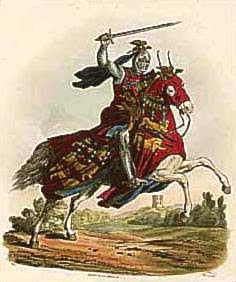
http://www.newworldencyclopedia.org/entry/Thomas_Plantagenet,_2nd_Earl_of_LancasterTHOMAS 2ND EARL OF LANCASTER
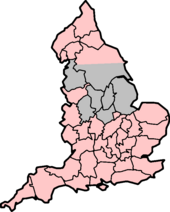
Thomas of Lancaster’s main possessions (Maddicott).THOMAS OF LANCASTER’S MAIN POSSESSIONShttps://en.wikipedia.org/wiki/Thomas,_2nd_Earl_of_Lancaster
http://www.newworldencyclopedia.org/entry/Thomas_Plantagenet,_2nd_Earl_of_LancasterTHOMAS 2ND EARL OF LANCASTER
Thomas of Lancaster’s main possessions (Maddicott).THOMAS OF LANCASTER’S MAIN POSSESSIONShttps://en.wikipedia.org/wiki/Thomas,_2nd_Earl_of_Lancaster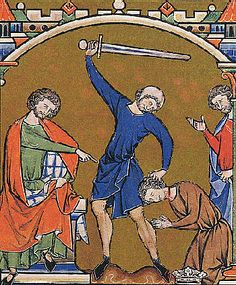
MURDER OF PIERS GAVESTON,INTIMATE FRIEND ANS[POSSIBLE] LOVER OF KING EDWARD II, UNDER THE DIRECT RESPONSIBILITYOF THE EARLS OF LANCASTER, WARWICK, HEREFORD AND ARUNDELMURDER OF PIERS GAVESTON,INTIMATE FRIEND ANS[POSSIBLE] LOVER OF KING EDWARD II, UNDER THE DIRECT RESPONSIBILITYOF THE EARLS OF LANCASTER, WARWICK, HEREFORD AND ARUNDELhttps://themortimersblog.wordpress.com/2017/03/22/a-royal-traitor-the-life-execution-of-thomas-of-lancaster-a-guest-post-by-stephen-spinks/

PONTEFRACT CASTLE, THOMAS OF LANCASTER’S FAVOURITECASTLE [INHERITED FROM HIS FATHER IN LAW, HENRY DE LACY, 3TH EARL OFLINCOLN, AT HIS DEATH IN 1311]IN HIS FAVOURITE CASTLE HIS SOCALLED ”TRIAL” TOOKPLACE AND NEAR HIS FAVOURITE CASTLE, IRONICALLY, HE WAS EXECUTEDhttps://en.wikipedia.org/wiki/Pontefract_Castle#Historyhttps://en.wikipedia.org/wiki/Pontefract_Castle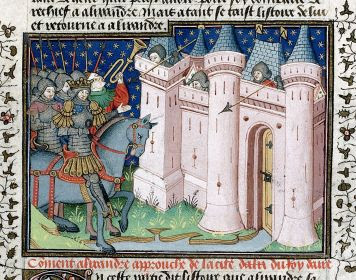
Edward was twice jeered by Lancaster’s garrison at Pontefract in 1317 & 1320 as he passed from north to south
EDWARD II WAS TWICE JEERED BY THOMAS OF LANCASTERAND HIS HOUSEHOLD, IN AT PONTEFRACT IN 1317 AND 1320, WHEN HEPASSED FROM NORTH TO SOUTH…..https://themortimersblog.wordpress.com/2017/03/22/a-royal-traitor-the-life-execution-of-thomas-of-lancaster-a-guest-post-by-stephen-spinks/
THE EXECUTION OF THOMAS, 2ND EARL OF LANCASTERhttp://www.luminarium.org/encyclopedia/thomasoflancaster.htm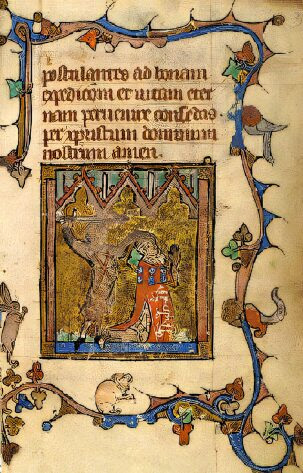
THE EXECUTION OF THOMAS, 2ND EARL OF LANCASTERhttp://www.englishmonarchs.co.uk/plantagenet_74.html
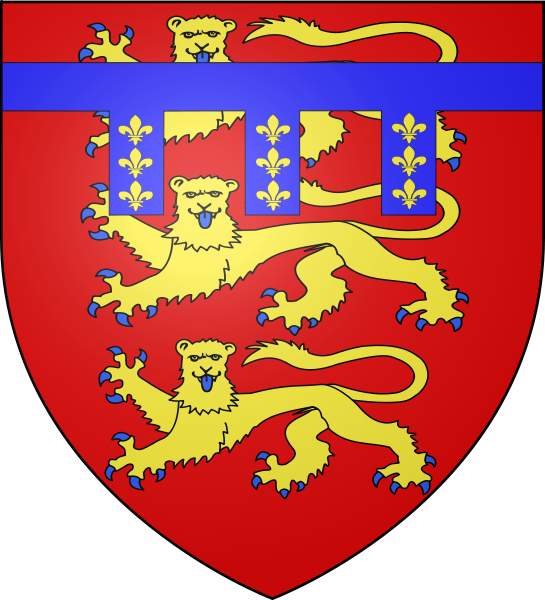
PLANTAGENETCOAT OF ARMS OF EDMUND CROUCHBACK [SON OFKING HENRY III, BROTHER OF KING EDWARD I ANDFATHER OF THOMAS, 2ND EARL OF LANCASTER], THOMAS,EARL OF LANCASTER AND HIS SUCCESSORShttp://www.newworldencyclopedia.org/entry/Thomas_Plantagenet,_2nd_Earl_of_Lancaster
Readers!Here is your traveller to history again!And she is continuing the Thomas of Lancaster drama saga!My attentive readers will remember:Earl Thomas of Lancaster, cousin of king Edward II, initially loyal to his king,then for political and personal reasons fell out with him, which would end up inan open battle.See the chapters that I sent you before:
ONE
https://www.astridessed.nl/thomas-of-lancaster-rebel-cousin-of-king-edward-ii-from-warlord-to-saint-chapter-one/
FOUR
FIVE
But not only Earl Thomas was a warlord, but also was proclaimed asa Saint after his death, which I find fascinatingFor how becomes a warlord a Saint?
Read all about that!
AND NOW DEAR READERS, CHAPTER SIX!
CHAPTER SIX
OPEN WAR
DESPENSER WAR/FIRST PHASE
[February-August 1321]
First
This ”book” [this article is so long, beginning to show like a book
really, patience readers] is about Thomas of Lancaster, but since
so many other players play a part in this magnificent story, they
have to be described too.
Especially to point out the complicated situation and all those
changements of alliances…..
I will mention the events of the war, but probably not all details, I am sorry
Would I have done that, it would fill a university paper…
For more reading, just look to the notes below…….
The reader must realize also, that in the first phase of
the Despenser war, the role of Thomas of Lancaster is
important, but limited.
The biggest role is played by his allies
the Marcher Lords.
You will see, that in fact, they started the war, which
was, in short, due to the Kings excessive favouritism
of his friends the Despensers.
The first phase of the war ends with the coerced banishment
of the Despensers.
A Prelude
B United against the King’s favourites/
Despenser war/Unlikely allies
C The storm breaks out/Despenser war/ started/Sworn Oaths/Fist to
fist/Toe to toe/I [First phase february-august 1321]
A
PRELUDE
In chapter five I wrote, that Thomas of Lancaster cooperated
well with the King in the unsuccesful siege of Berwick [in the war
against the Scots][277]
But as I wrote earlier, the fragile co operation between
the two most powerful men, was ruined by the following
remark of the King
””When this wretched business is over, we will turn our hands to other matters. For I have not forgotten the wrong that was done to my brother Piers.” [278]
That despite the earlier pardons for the murder
of Piers Gaveston, the King had issued in
1313 [279] and the extended pardons to Lancaster and
his allies, given at the Treaty
of Leake. [280]
To say it again:
A king must rise above his personal feelings and must
be true to his word.
Edward II couldn’t or wouldn’t do that……
That being said:
Understandably Thomas of Lancaster, knowing
that the King’s remark about Piers Gaveston was directly aimed against him,
said ”Hasta la vista” and left Berwick. [281]
And from that moment, relations between the two men deterioriated again.
But not only the unpredictability of the King was to blame
for the deteriation between the two men,
also the rising of a new star favourite, more dangerous
than all the others had been:
You’ve met him already:
Hugh Despenser the Younger [282] and
with his coming, things would never be the same again….
To be fair, Thomas himself was certainly NOT
innocent either [not to speak about the murder of Gaveston],
because of his repeated provocations of the King.
I wrote about it in chapter five
Jeering at the King from his [Thomas’] castle Pontefract,
in 1317 [that jeering would be repeated in 1320 with the Queen accompanying the King] [283]
Once blocking the King’s path…. [284]
That could be considered as treason, and not without reason!
In each case it was to be expected, that the King would not
consider those insults lightly as will appear in this
story….. [285]
B
UNITED AGAINST THE KING’S FAVOURITES
DESPENSER WAR/UNLIKELY ALLIES
Thomas of Lancaster and his allies
The Marcher Lords and allies
Two former royal favourites
The last ”fight to the death” between Thomas and his cousin,
King Edward II, was actually a fight against the influence
of a new, far more dangerous favourite, Hugh
Despenser the Younger [286] and his father,
Hugh Despenser, 1st Earl of Winchester[ Despenser
the Elder]. [287]
Who were in this fight and why?
Thomas of Lancaster of course, being the leader
of the baronial opposition against the King,
the ”Marcher Lords” [288],
Roger Mortimer and his uncle, Roger Mortimer de
Chirk [289] and their allies.
And, painfully for Edward II, his two former favourites, Roger Damory and Hugh
Audley. [290]
Once deadly enemies of Thomas of Lancaster, now allies……
In the last battle Lancaster would fight against his king,
the battle of Boroughbridge [291], Hugh Audley would even
fight at his side…..[292]
While Sir Robert Holland, his [Thomas’] close and die hard ally, would abandon him
in his hour of need… [293]
Something Thomas’ brother Henry of Lancaster [who by
the way NOT participated in any of his brother”s rebellions, although
he seemed to be involved in the anti Despenser coalition]
[294] , would not forget or forgive…..[295]
This anti Despenser fight [and subsequently against the King]
was called the ”Despenser war”, with the aim to
crush the Despenser’s influence over the King, which
would eventually result in avariciousness and tyranny. [296]
But that’s for later.
What thar Despenser influence really meant?
For the Marcher Lords, to be robbed of their lands
and privileges, as the revival of an old feud.
The former favourites of the King held a grudge against Hugh
Despenser the Younger regarding his land grabbing as
the ”Gloucester inheritance case”[see below]
And for Thomas of Lancaster it was threefold:
A personal matter [he seemed to have loathed Despenser
the Elder, the reason why I don’t know]
A wish to curb royal power through the Ordinances [297]
[which included no avaricious favourites].
And of course [let’s not make an idealist of Thomas, hahaha]
a personal need for power.
COMEBACK OF THOMAS OF LANCASTER, LEADER OF THE BARONIAL
OPPOSITION AGAINST THE KING, BUT TEMPORARILY POLITICALLY
ISOLATED
As written in chapter four, after the death of his father in law in 1311,
the 3rd Earl of Lincoln [called ”Burst Belly” by vain and tragic Piers Gaveston],
Thomas became very powerful [inherited from his father in law the Earldoms
Lincoln and Salisbury, already in the possession of Lancaster, Leicester and
Derby, inherited from his own father, Edmund Crouchback, brother of King
Edward I].
So he became the ”natural” leader of the opposition against
Edward II and his favourite Piers Gaveston.
After the battle of Bannockburn in 1314, which ended so destastrous
for England, Edward II was at the mercy of Thomas, in name King,
while Thomas was the real king, de facto.
See chapter five
He became gradually politically isolated [298] [not attending parliaments,
personal conflicts/feuds with other barons, no wise political insight, lack
of governmental talents, unable to protect the borders
against the Scottish raids, etc], but was yet too powerful
to be ignored, because of his five Earldoms and,not to forget, his royal
birth [being first cousin of Edward II]
However, when the resistance against the Despensers grew, The Marcher
Lords and others looked up to Thomas as a leader of the resistance
again, since he was the most constant factor in the struggle
against King’s favourites [and the King]….. [299]
Together, they would go ”fist to fist’, toe to toe” in this rebellion……[300]
THE MARCHER LORDS
Let’s say it like it is.
The Despensers, father and son, were a bunch of thieves
and criminals, who went into length to aggrandise their power
and wealth, with less [or not at all] scrupules.
From noble birth, admitted and married into the royal family [301],
but nevertheless, thieves.
Whether Hugh Despenser the Younger [favourite of the
King] was really attached to Edward II[302] is food for
Medieval historians [although even they can’t look into
the royal bedchamber, supposedly Hugh was the ”husband”
of Edward II, as Queen Isabella would write later [303].
In each case, he was a shameless royal adventurer
[funny side was, not for his victims of course, that he was a pirate
during his exile, hahahahaha [304]
And one thing was sure:
Edward II was really very attached to him. [305]
ANYWAY:
Appointed as chamberlain of the King in 1318, Hugh moved himself
into the affections of the King [306], replaced the former royal
favourites [Roger Damory, Hugh Audley and William Montecute]
and the Piers Gaveston story [but this time a far more dangerous
player] started all over again.
But this time worse, given the greed and avariciousness of
the Despensers, their excessive ambition and need for
political power.
They didn’t allow anyone access to Edward unless at least one of them was present.
Even Queen Isabella couldn’t see her husband alone! [307]
Such a crazy situation existed….
Back to the avariciousness of the Despensers:
In the Middle Ages, land was power and that was just the thing
the Despensers wanted.
They wanted to build a huge ‘empire’ in South Wales and
that was the very territory where the Marcher Lords
[keepers of the borders with Wales] had lands.
They feared their lands to be taken over, with consent
of the King [who was infatuated with our Hugh Despenser..]
Their fears were proved to be right.
In october 1320 Edward II ordered the peninsula of Gower in South Wales to be taken into his own hands, apparently to
give it to Hugh Despenser.
See for the whole, complicated story, note 308
Roger Mortimer , his uncle Roger Mortimer of
Chirk and the other Marcher Lords were furious, considering
this as a deprivation of their rights [309]
Hugh Despenser was granted also other lands in the
Marches [Welsh territory]’, which was taken fromRoger
Mortimer and other Marcher Lords [310]
Not only unfair, but also foolish of Edward, since
most of the Marcher Lords, especially Roger Mortimer and his uncle, were, until Edward’s clear favouritism of
Despenser, at the cost of them and the other
Marcher Lords, were loyal to the throne. [311]
To make matters complicated, there also was an old
feud between Marcher Lords Roger Mortimer [and his uncle,
Roger Mortimer de Chirk] and the Despensers….
Read about that in note 312
TWO FORMER ROYAL FAVOURITES AND HUGH DESPENSER
THE YOUNGER
Hugh Despenser the Younger [as his father] had a mastertalent to
incite the fury and hatred from his colleague noblemen.
He pushed the Marcher Lords to the edge with his avariciousness
and unlimited ambition, and his avariciousness also led to a big
conflict with two former favourites of Edward II, Roger Damory and
Hugh Audley:
Not only Hugh Despenser replaced Damory and
Audley as favourites[also Montecute, but he played no further role, died in 1319 in
Gascony], he also claimed the best lands from the Gloucester inheritance.
[Hugh Despenser, Hugh Audley and Roger Damory were married to
the three sisters of the 8th Earl of Gloucester and when he died in the
battle of Bannockburn childless, his sisters were his heirs] [313]
And to further enrage Damory and Audley:
In october 1320 Edward II took the South Wales peninsula of Gower into his own hands prior to granting it to Hugh Despenser
See for background information about that, note 314
Despenser also had taken the Welsh lands of Hugh
Audley. [315]
That Despenser really was a man, who knew how to
make friends……[hahahahahaha] [316]
Is it wonder, that men like the Marcher Lords
, who once were loyal to the throne,
were driven into rebellion and that even sworn enemies
as Thomas of Lancaster and the former favourites found each other and fought side by side?
C
THE STORM BREAKS OUT/DESPENSER
WAR/SWORN OATHS/FIST TO FIST/TOE TO
TOE
I
FIRST PHASE/FEBRUARY-AUGUST 1321
1
The Marcher Lords on the rampage/sworn oaths:
The MarcherLords must have thought:
”Attack is the best way of defence.”
Because the war started with them attacking the
Despenser lands and properties in Wales. [317]
Those calamities [sacking, looting, pillaging,
with most of the victims of course the common
people….] took place from may 1321.
Stealing from the Despensers was one thing, far more
worse was, that, as usual, the poor and defenseless people
paid the highest price:
Sacking, looting, pillaging, extorting money
from poor villagers with the threath of burning their
village. [318]
It was degrading and cruel.
Those same horrors the Marcher Lords would repeat
in the second phase of the Despenser war, in
november and december 1321. [319]
But before going on the rampage, the Marcher Lords had arranged for support in the back:
In february 1321, they held a meeting with Thomas of
Lancaster [probably at his favourite Castle Pontefract]
and there was decided to attack
Despenser lands. [320]
However, Thomas did not take part in the attack
itself.
As a reaction on the Marcher Lords-Lancaster agreement
[to attack Despenser lands], Edward II responded in March by mobilising his forces in Wales, demonstrating that he intended to make any attack on the Despensers an attack on the crown, and therefore treasonable
[321]
That was no clever movement of the King, thereby confirming his onesided favouritism of the Despensers
and making it nearly impossible for those who were hesitant
to go into rebellion, to stay loyal to the crown.
At the other hand, the King tried to placate the
rebels [or resistance fighters against the Despenser
avariciousness, it depends from how you see it], by
calling them [the Marcher Lords] to convene with him [first in Gloucester, later in Bristol] to no avail. [322]
After attacking Despenser properties [lands, castles, etc]
as much as they pleased, Roger Mortimer and Hereford
[brother in law of Edward II and together with Thomas of Lancaster, the 10th Earl of Warwick and the 9th Earl of
Arundel, the murderer of Piers Gaveston in 1312] marched
North to join Lancaster at Pontefract.
In june the barons swore an alliance at Sherburn-in-Elmet,
near Pontefract, calling their faction
the ”Contrariants” and promised
to remove the Despensers for good.
Sadly for Thomas and his allies:
An attempt to attract the northern Lords to
their cause failed.
They stayed loyal to the King. [323]
Lancaster and the Marcher Lords would swear an oath once more on 29 november 1321, in the second phase of
the Despenser war ”to maintain what they had
commenced” [324]
2
March on London
”We bow down to no man”………..
One thing you can say about the Marcher Lords”
They DID have guts……..
Not only destroying, looting, pillaging, extortioning
and terrorising as they pleased and not
only the Despenser possessions [and innocent
people, who were unlucky to live on Despenser
lands] [325].
No, they went farther.
Much farther…..
After making their alliance with Thomas of
Lancaster at Sherburn-in-Elmet [326], the
Marcher Lords marched [hahaha, but that was what
they did] from Sherburn [near Pontefract, in
Yorkshire] to…….London….
From all places, they had the audacity to march
on the royal centre of power….
From Yorkshire to London they repeated the
same atrocities as in Wales:
Assault, extortion and terror:
They seized victuals from local inhabitants and pillaged the countryside – not only Despenser manors – all the way from Yorkshire to London. [327]
Four Marchers [John Mowbray, Stephen Baret, Jocelyn Deyville and Bogo Bayouse] even robbed the Church in Laughton-en-le-Morthen [in Yorkshire] [328]
Further they tried to buy people’s allegiance with money, and seized the property of those who refused to join them. [329]
Real maffia practices……
But that terrorising and pillaging was only
a [bad] game:
Their goal was London, to put pressure on the King
in order to banish the Despensers for good.
When they arrived outside of London on july 1321,
not really surprisingly [even without Internet
and smartphone, bad news travels fast], the citizens
of London refused to let them in.
The King also refused to meet them or even to listen to their demands that the Despensers be perpetually exiled from England, and they and their heirs disinherited “as false and traitorous criminals and spies.” [330]
Then, to go a stadium further [in fact that was treason]
, they placed themselves and their armies outside the city walls, at strategic locations, to prevent the king leaving……[331]
Let us put this straight:
THEY BESIEGED LONDON, ”IMPRISONING”
THE KING IN HIS OWN CAPITAL!
They then sent two knights as envoys to Edward II, to tell him that they held both Hugh Despensers “enemies and traitors to you and to the kingdom, and for this they wish them to be removed from here.” [332]
Not surprisingly, the King, again, refused to meet the envoys.
On 1 August the Marchers entered London, while their
great ally, Thomas of Lancaster, arrived also in August to support
them. [333]
Meanwhile, Despenser the Younger threatening them
from a ship on the River Thames, and the rebels [Contrariants]
threatened to begin to destroy royal properties and lands outside London unless he desisted. [334]
To cut a long story short:
the earls of Pembroke, Richmond, Surrey and Arundel finally brought the Marchers’ demands to Edward. If he refused to consent to the Despensers’ exile, he would be deposed. [335]
Even then the King refused.
3
QUEEN ISABELLA ON HER KNEES
And as in the chess play [336], where the Queen holds the most
important playing position, the solution came from Queen
Isabella:
Queen Isabella went down on her knees before her husband and begged him, for the good of his realm, to exile the Despensers.
[337]
That had not only the desired effect, it gave the King the opportunity, to get out from this without losing his
face, making it look like fulfilling his wife’s desire.
But it must have been very painful for Edward II, losing
his friends, who meant that much to him….
I think we must consider that, besides his foolish
and unfair favouritism at the cost of the other Lords.
4
AGAIN A MAN OF HONOUR
THE EARL OF PEMBROKE, MEDIATOR
And with all that negociating, let’s not forget the
important role of the Earl of Pembroke [the man of
honour, who didn’t want to breach his oath against
Piers Gaveston and after Gaveston’s death, diehard
loyal to the King [338] , who continually had
mediated between the Marcher Lords and the King and
was behind the exile plea of Queen Isabella. [339]
5
BANISHMENT
And finally the King decided on the banishment of
The Despensers, father and son [the favourite]
At 14 August in the Great Hall of Westminster it was to
be, in the presence, of course, of the King
Charges:
”They were accused, among many other things, of “evil covetousness,” accroaching to themselves royal power, guiding and counselling the king evilly, only allowing the magnates to speak to Edward in their presence, “ousting the king from his duty,” removing good counsellors from their positions and replacing them “by other false and bad ministers of their conspiracy,” and “plotting to distance the affection of our lord the king from the peers of the land, to have sole government of the realm between the two of them.” [340]
[They were also called ”evil councillors” by the
Contrariants [The Marcher Lords, Thomas of Lancaster and
allies]
That was all true. [341]
The judgement decreed that the Despensers “shall be disinherited for ever as disinheritors of the crown and enemies of the king and his people, and that they shall be exiled from the realm of England, without returning at any time,” saving only the consent of the king, prelates, earls and barons in parliament. They were convicted by notoriety, with no chance to speak in their own defence. [342]
Utterly unfair, that they had no chance to speak in their own
defence, but what was ”fair trial” in that time?
The same reprehensible thing happened to so many other noblemen thereafter……
The departure date was set on 29 August, 1321.
Despenser the Elder left England immediately, perhaps to one of Edward II’s French territories, Gascony or Ponthieu.
However, his son, Despenser the Younger BECAME A PIRATE
IN THE ENGLISH CHANNEL [HAHAHAHAHA] [343]
[6]
AGAIN, ”ROYAL PARDONS”……
Between 20 August and late September 1321, Edward II
granted a pardon to more than 400 men for the murders, abductions, thefts and vandalism they had committed in the Despensers’ lands, which crimes the Marchers claimed were “a case of necessity, [and] ought not to be corrected or punished by the rigour of the law, nor could this happen without causing too much trouble.” [344]
Which of course was a hypocrite excuse and bagatellising
of serious and undefensible crimes.
Edward later protested that he had done this unwillingly and that any pardon he had given under coercion was invalid and contravened his coronation oath. [345]
I must say, the King had a point here.
The attentive reader remembers, that I wrote at the beginning
of this chapter [chapter VI], that the King was not true to his word, issuing
pardons and later to come back on them, [346]
But this case was different, because now the King was besieged
in his own capital as threathened with deposition,
if he didn’t consent with the Despensers exile.
That’s clearly coercion. And treason.
[7]
PLANNING FOR REVENGE
The King was furious, of course and by the way [but the reader
has already understood] never to consent with the permanent
exile of his Despenser friends.
The following morning at breakfast, the king talked to his ally Hamo Hethe, bishop of Rochester, “anxious and sad.” He swore that he would “within half a year make such an amend that the whole world would hear of it and tremble,” [347]
And as we will see in the next chapter, he was true to his word…..
END OF THIS CHAPTER
SEE FOR NOTES
NOTES 1-250
NOTES 251-347
